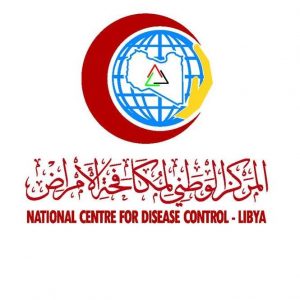By Sami Zaptia.

London, 4 May 2020:
Libya’s National Centre for Disease Control (NCDC) announced two new Coronavirus (Covid-19) cases on Friday and four new recoveries on Saturday. The new positive cases had mixed with preexisting cases the NCDC said.
The latest figures bring the country’s total cases to 63, with 22 recoveries and three deaths. Putting this into regional context: On 1 May, Morocco had 4,569 cases , Algeria 4,154, Tunis 994 and Mauritania 8 cases – compared to Libya’s 63.
WHO urges continued vigilance
Meanwhile, the World Health Organization (WHO) is urged Health Authorities in Libya on Saturday to exercise caution in the face of the serious health threat posed by COVID-19 in the country.
“Now is not the time to reduce caution,” said Elizabeth Hoff, WHO’s representative in Libya said in the statement. “The low numbers reported should not fool us into a false sense of security. Libya is in the early stages of the epidemic and has not yet reached the height of infection. Until the test becomes more widespread, it will be impossible to ascertain the extent of the disease and its geographical spread.”
Up to Saturday, Libya had tested 1,802 laboratory samples of COVID-19. Of the 63 confirmed patients, 3 have died, 22 have recovered and the rest are still being treated. Tripoli accounts for the majority of cases (48), followed by Misrata (10), Benghazi (4) and Surman (1).
WHO went on to recommend that Libya’s health authorities increase testing capacity by establishing an additional laboratory in south Libya and expanding testing to include patients with influenza-like illnesses and severe acute respiratory infections.
It also said that adequate, regular supplies of testing kits will be essential. Improved disease surveillance and investigation – including in migrant populations – and contact tracing are also important tools to inform and drive the outbreak response.
Hoff said that the key public health measures to tackle COVID-19 were the same in every country: track, test and treat. Patients with confirmed COVID-19 must be isolated, contacts traced, and measures to prevent the disease must continue. While some countries in western Europe are seeing a stabilization or decline in numbers, others are beginning to see a resurgence of cases. Africa, at the beginning of the pandemic, is witnessing an upward trend.
As WHO’s Director-General recently said: “Make no mistake: we have a long way to go. This virus will be with us for a long time.”, concluded the WHO-Libya statement.
Returning citizens stranded abroad
Meanwhile, with the news that as of Tuesday two flights have been scheduled to repatriate the first batch of Libyans, and up to a maximum of three flights per day, the head of the NCDC, Bad Al-din al-Najar, assured Libyan citizens on Sunday that no fellow citizen currently stranded abroad will be allowed to return to Libya until they had undergone preventive measures taken by the state and it was certain that they were free of Corona.
Fears have been expressed by the Libyan public that having kept infections to a minimum, and having endured 6pm to 6am curfews, a sudden flood of repatriations might scupper all the good work done so far. The fear is also based on the news that some of those repatriated in March April had escaped quarantine.
It will be recalled that on 12 April Libya’s Tripoli based Foreign Ministry had announced detailed plans for the repatriation of stranded citizens. On 21 April the Committee formed to conduct the repatriation had announced that the screening and quarantine process had started.
Najar said that the NCDC has taken technical measures regarding the repatriation of Libyan citizens stranded abroad. He pointed out that no Libyan citizen will return until after passing the procedures taken from quarantine for 14 days, and to make sure that they are completely free of Coronavirus through PCR (polymerise chain reaction) screening. Some of those stranded in Istanbul have indeed confirmed these procedures to Libya Herald.
He also revealed that the NCDC was preparing a guide for airlines on how to deal in terms of preventive steps with citizens stranded during their transfer to Libya and that there is coordination between Libya’s Ministry of Transport and the NCDC in the transportation of citizens stranded abroad.
Najar said that the NCDC has prepared monitoring forms to follow-up on the health status of passengers, which will need to be filled-in by returnees inside the aircraft and then handed over to the international health control offices, which will deliver them to the NCDC and through which all travellers will be followed up.
https://www.libyaherald.com/2020/04/22/libya-starts-14-day-quarantine-process-and-testing-of-citizens-stranded-abroad-prior-to-repatriation/
https://www.libyaherald.com/2020/04/15/libyas-tripoli-based-foreign-ministry-announces-plans-to-repatriate-citizens-stranded-abroad/







